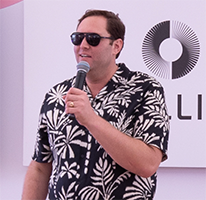I'm a longtime Verizon Wireless customer, but it took an article in the New York Times last month to make me aware that the company plans to share my personal cell phone information with its affiliates.
Verizon had sent letters to its customers. I must have missed it. It was probably in with the stack of junk mail piled up after I returned from the Direct Marketing Association's annual conference in Chicago last month and was most likely tossed in the trash.
But even if I did see an envelope stamped with a Verizon return address it may have hit the circular file anyway unless it stated in bold letters on the outer envelope: YOUR PERSONAL INFORMATION IS ABOUT TO BE COMPRISED. That I would have immediately opened.
Verizon Wireless has more than 60 million customers. Who knows how many missed the mailing? And not everyone reads the New York Times.
The company gave its customers 30 days to “opt out” if they wanted to keep their personal records private. That information includes the number of calls made and the geographic destinations, as well as service plans purchased. This might be all well and good if they could guarantee that every single customer was aware of, and capable of, requesting that change if they so decided.
Verizon's request reminds me of a sales tool used by magazine publishers, magazine subscription services and book clubs called a negative-option offer, which puts the onus on the customer to cancel. Quite a few companies seem to be pretty sneaky about it too.
The problem arises when these offers aren't clearly disclosed or conspicuous. For example, people think that they just signed up for a one-year magazine subscription when they actually agreed to let the company automatically renew the magazine year after year, or until the subscriber takes an action to cancel. It's not noticed until the charge appears on the credit card statement a year later. Vague telemarketing scripts also play a role in the confusion.
After complaints about the sales technique rose 63% over a two-year period several years ago, the Federal Trade Commission toughened its stand on the issue. In addition to requesting that companies clearly state the offer, it said such offers should require an affirmative answer from the consumer before renewing the subscription. That makes sense.
Various FTC investigations have resulted in scores of settlements totaling hundreds of thousands of dollars for Negative Option Rule violations. The Direct Marketing Association, which had been notified by the FTC about the rising complaints, adopted member guidelines for advanced-consent marketing.
Verizon should take note. It should require its customers to actively say yes or no to having their personal calling information shared, that way they can be sure everyone gets the message. Verizon said that its policies already state that it can share information among “affiliates, vendors or third parties” about the services its customers purchase, but that opting out about cell calls is being treated differently.
So what does Verizon plan to do with all that information?
It plans to share the data with its divisions and sell new products to customers. But there's also the potential to sell and deliver ads to 60 million phones, especially if the numbers are attached to individual customer calling behavior. A person who calls Miami on a regular basis might appreciate an offer for a hotel discount there. Surveys have shown that a small, but growing number of cell phone users say they would be willing to receive ads on their phones if they were relevant.
But what happens when people who didn't realize that their cell phone information was being shared start getting ads they don't want on their phones? I can't hear you now.
The New York Times was nice enough to include the toll-free number in its article for customers to call if they don't want their personal information shared. Maybe Verizon should have sent a text message. I would have opened that.
Send your comments to [email protected].
TALK TO US!
We'd like to hear what you have to say about us or about news, trends and issues in promotion marketing.
To contact the editor:
Mail: Promo, 249 W. 17th St., 3rd Floor, New York, NY 10011-5300
E-mail: [email protected]
Phone: 212-204-4222
 Network
Network

